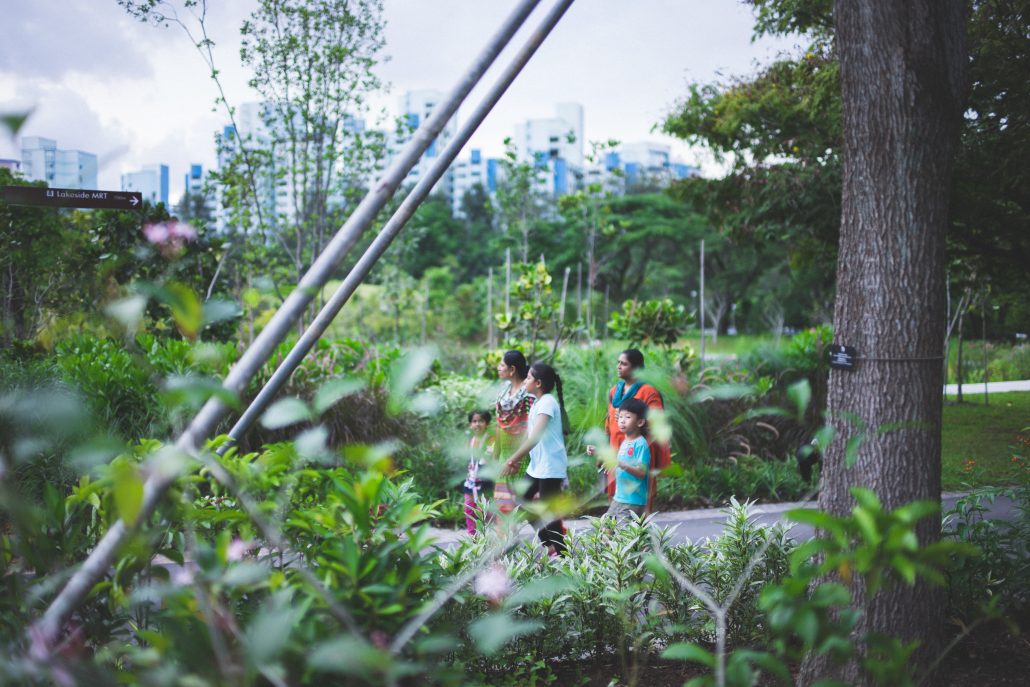Making headlines recently, a 4-room HDB flat in Tiong Bahru with a short 51-year lease remaining was sold for a whopping $1.1 million, jumping on a bandwagon of HDBs crossing the million-dollar price point. However, cases as such surface only once in a blue moon. More often than not, informed property buyers avoid purchasing properties with shorter remaining leases. This is because, upon the expiration of the lease at 99 years, all ownership and rights to the land will be extinguished and is reverted back to the government. (Check out our previous article which explains what happens when your flat’s 99-year lease is up.)
The shorter the lease remaining on a flat, the lower the selling price which often reflects poor confidence and market sentiments. More often than not, these flats are the last option for those who may not have the financial resources to purchase homes with longer remaining leases. However, are you really saving more at the end of the day? In this article, we will be highlighting certain key details you must definitely know before even considering the purchase of a home with a shorter remaining lease!
Before we begin, we define a home with a short remaining lease to be one with less than 60 years. This is often a number relied on by banks and even the CPF board when making decisions concerning mortgage and refinancing-related transactions.

Important Tip #1: Lower Loan-to-value (LTV), banks less willing to process the loan
With an older flat, banks reflect similar sentiments as property buyers and are generally more adverse and are less willing to process a loan compared to a newer flat. Banks provide loan amounts based on LTV restrictions. For a newer flat that has more than 75 years lease left, the current LTV is capped at 75%. This means that a maximum total of up to 75% of the flat’s transacted price can be financed through a bank loan, with the remaining 25% to be either from cash or CPF. However, for older flats, this does not hold true anymore. Given their risk-aversion, banks are likely to reduce your eligible LTV to <75%. This would definitely affect your financial plans, with the higher likelihood that you would have to fork up more cash. For those who are already facing financial pressures, more cash payable towards your monthly mortgage repayment would mean that there is lesser cash to spare for other uses. This would defeat the very purpose of why one would even consider purchasing a short-leased flat in the first place!
Important Tip #2: Lower CPF withdrawal allowance for repayment of older flats
For the general populous in Singapore, most finance their homes through a mixture of CPF and cash payments monthly. Unfortunately, CPF also imposes limitations on the use of CPF funds when financing an older HDB flat with less than 60 years remaining on the lease. One of these limitations include that unless the remaining lease on a flat can cover the youngest buyer till the minimum age of 95 years old, only a prorated amount can be used to fund the purchase of the home.
For the purpose of illustration, let us take an example of a couple who is keen to purchase a flat built in 1971 which has a remaining lease of only 50 years today. Within the couple, the female is the youngest aged 25 at the date of flat purchase. Since the minimum age required to house the individual is till 95 years old, the minimum remaining lease should be at least 70 years for the couple to withdraw the maximum allowable from the CPF for their mortgage financing. Unfortunately, in this example, the remaining lease being only 50 years would mean that only prorated amounts of CPF monies can be used. Do check out CPF’s very own calculator which helps you estimate how much you can withdraw to finance your home!
Important tip #3: It may be more difficult to resell your resale property
Not every short-leased flat would snag up a $1.1 million price tag just like the one in Tiong Bahru. In fact, it is generally known that the older the flat, the lower the bargaining power and selling price. This is because others will also be faced with similar limitations and pain points as mentioned above should they purchase the property off your hands. Some may be hopeful that SERS or en-bloc initiatives would kick in and provide windfall opportunities.
However, in our previous article on SERS, while no HDB ever has yet to reach its 99-year lease due to governmental intervention, it is not mandated or promised by the government that every aged HDB flat will receive the opportunity to benefit from SERS. There is still a good chance that the full 99 years will be exhausted and upon expiration, your property rights and value will amount to zero. Especially if you are in your 40s and 50s, this would definitely impact your retirement plans. In the worst case, you could be well in your golden years and your flat has exhausted its entire lease duration without SERS initiatives. You would then have to go through the hassle and pain of finding an alternative housing arrangement, which would definitely be expensive and time-consuming especially since no cash proceeds were received from your previous home. This is definitely a crucial point of consideration before betting money down on a short-leased flat!
Important Tip #4: Possibly not eligible for HDB Lease Buyback Scheme
An interesting initiative by the government is the HDB Lease Buyback Scheme targeted towards senior residents who may want to boost their retirement funds and have no intentions of leaving them as gifts for the next generation. This is done so by selling a portion of the lease back to HDB in exchange for cash. However, while this sounds like an attractive option, there are conditions attached to them. This includes that the remaining lease must be of a minimum 20 years and the homeowner must be above the age of 65.
For illustration purposes, let us assume that a couple in their 20s today decide to purchase their marital home which is a resale flat with only 50 years left remaining. It would be another 40 years or so before they are able to reach the minimum qualifiable age of 65 years. This would mean that the lease on the flat would likely be between 5-10 years remaining, rendering them ineligible for the HDB Lease Buyback Scheme given that the minimum requirement for a valid Lease Buyback is 20 years remaining.

These four points are just some of the many considerations to take note of when purchasing a flat with a short remaining lease. Other points not mentioned may include that older flats generally have fewer and poorer amenities, with the neighborhood composition generally populated with seniors. If you are a younger couple, your tastes and preferences, needs and ideal lifestyles may not align with what is generally offered in older estates. While this is so, buying a home is a highly personal decision that differs from individual to individual. There is no clear ‘right’ nor ‘wrong’ when it comes to property hunting! Hence, it is definitely important to have a serious and informed discussion with your partner(s) on what is best suited for you. Should you feel unsure, feel free to speak with us today!
Want to find the best mortgage rate in town? Check out our free comparison service to learn more!
Read more of our posts below!

